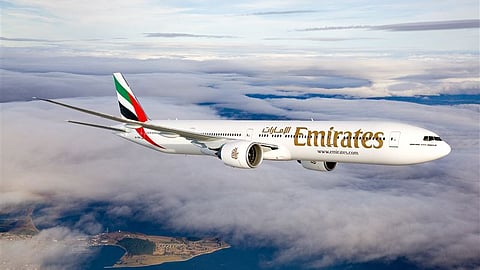Emirates Engineers Enhance Efficiencies with RFID
While other airlines have also been using similar technology, Emirates completes the largest number of RFID scans for inflight emergency equipment on a daily basis – that's for over 250 aircraft and 133,000 life vests.
Importantly, this has helped the engineering team maintain emergency equipment across the board with 100% data integrity and compliance, and provide accurate inventory forecasts with much greater efficiencies.
Ahmed Safa, Emirates' divisional senior vice president engineering said: "We are always on the look-out for technology and its applications that boost compliance, efficiencies, employee wellness and, ultimately, the bottom line.
“Rolling out RFIDs for emergency equipment tracking has made our teams extremely proud on three counts: it ties in with our stringent safety standards; it minimises the challenges presented by our massive operations and fleet; and it showcases our people's passion and skillsets.
“Multiple teams have worked on making this project a stellar success."
An aircraft typically has around 30 different emergency items, including life vests, baby survival cots, defibrillators, first aid kits, fire extinguishers, medical kits, oxygen bottles and generators and protective breathing equipment. When totalled, Emirates has around 180,000 emergency equipment in its fleet at any one time.
Emirates and flydubai Enter 3rd Year of Strategic Partnership
An Airbus A380 has 820 pieces of emergency equipment that used to take 350 minutes to manually inspect, and Emirates has 112 such aircraft in the fleet. Similarly, the airline has 144 Boeing 777 passenger aircraft, each with 540 pieces of emergency equipment that used to take 270 minutes to manually inspect.
Now thanks to the RFID application, Emirates Engineering can scan an A380 in just 11 minutes, a significant saving of 97% time-wise, and a Boeing 777 in just six minutes, or 98% less time.
RFID has significantly changed the employee role and interface, improved overall resource efficiencies, and has led to savings of millions annually. The airline has more than 1,800 mechanics trained to complete an aircraft scan.
Pre-RFID, to confirm the serviceability of the life vest, mechanics were required to individually access stowage under each of the passenger seats, which could range from 489 to 615 on an A380 and from 354 to 428 in a Boeing 777, and physically read the identification label.
Now with all life vests and emergency equipment RFID tagged, a mechanic simply walks through the cabin with a handset that receives all the data, which is uploaded to the Cloud and is then available to the team on any device for future scans.
Read More: Emirates SkyCargo Unveils New e-Commerce Platform


